
“In my career of almost 30 years, I've never seen a liver cancer patient that did not have a chronic underlying liver disease,” Dr. Mindie H. Nguyen told CURE®.

A nationally-published, award-winning journalist, Alex Biese joined the CURE team as an assistant managing editor in April 2023. Prior to that, Alex's work was published in outlets including the Chicago Sun-Times, MTV.com, USA TODAY and the Press of Atlantic City. Alex is a member of NLGJA: The Association of LGBTQ+ Journalists, and also performs at the Jersey Shore with the acoustic jam band Somewhat Relative.

“In my career of almost 30 years, I've never seen a liver cancer patient that did not have a chronic underlying liver disease,” Dr. Mindie H. Nguyen told CURE®.

Patients with unresectable hepatocellular carcinoma and poor liver function were more likely to experience serious side effects leading to regorafenib treatment discontinuation, researchers have found.

We take a look at the first FDA approval in the oncology space for 2024, the Lymphedema Treatment Act and more.

Antiviral treatments play a crucial role in the survival of patients with either hepatitis B or C and liver cancer, but researchers have found that antiviral therapy is “severely underutilized” even among patients who undergo curative surgery.

Patients recently treated for cancer who required hospitalization for COVID-19 were at risk for venous thromboembolisms (VTEs), recent research has found, with investigators determining that patients who experience a thromboembolic event (TEE) are at a 20% to 25% risk of death.

BTK degrader NX-5948 has been granted Fast Track designation by the FDA to treat some adults with relapsed or refractory chronic lymphocytic leukemia or relapsed or refractory small lymphocytic lymphoma.

The Food and Drug Administration (FDA) has recently approved Keytruda (pembrolizumab) plus chemoradiotherapy for the treatment of patients with stages 3 to 4A cervical cancer.

Endocrine therapy, particularly when administered in combination with Verzenio (abemaciclib), is effective when compared with chemotherapy among patients with metastatic breast cancer who experienced disease progression on Ibrance (palbociclib), according to recently published research.

From Tom Green to Deadpool, humor-based messaging has long been utilized for testicular cancer. Researchers aren’t sure how effective that strategy is.

Last week, the FDA provided updates on two cancer therapies. In this episode, we discuss those decisions and more.

Patients with melanoma play a vital role in their own post-surgical care, as one expert from Dana-Farber Cancer Institute explained to CURE®.

Nearly 40% of patients who received treatment for cervical cancer were still being prescribed outpatient opioids for pain management six months later, according to recently published study findings.

Award-winning journalist applied the same dedication that served her award-winning reporting in support of her own survival following a diagnosis of stage 4 anaplastic thyroid cancer.

Patients continue to be enrolled in a study evaluating the dual-action androgen receptor inhibitor ONCT-534 for the treatment of patients with advanced prostate cancer who are relapsed or refractory to approved androgen receptor pathway inhibitors (ARPIs).

“When we talk about recurrence of melanoma, we actually worry more about what we cannot see, what's on the inside,” Dr. Justine V. Cohen of the Dana-Farber Cancer Institute told CURE®.

The Food and Drug Administration has accepted a supplemental Biologics License Application (sBLA) intended to convert the accelerated approval granted to Tivdak (tisotumab vedotin-tftv) in 2021 to full approval for the treatment of patients with recurrent or metastatic cervical cancer with disease progression on or after first-line therapy.

The year 2024 is now underway. After a busy 2023, we’re now looking back at some of the oncology headlines from the new year.

Vd1-gd T cells, a rare type of immune cell, have been found to potentially predict how likely it is that certain patients with advanced skin cancer will be responsive to treatment via immunotherapy, according to recently published research.
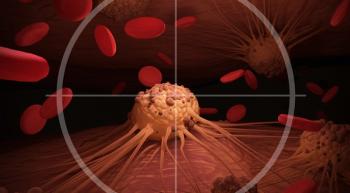
Patients with relapsed/refractory mantle cell lymphoma described by one expert as “older, sicker and more heavily pretreated” than those previously studied experienced impressive responses to treatment with CAR-T cell therapy Tecartus.
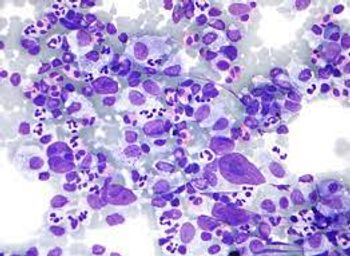
Researchers have found the CAR-T cell therapy Breyanzi (lisocabtagene maraleucel) to be a cost-effective second-line treatment for patients with relapsed and refractory diffuse large B-cell lymphoma as the drug’s cost rises.

From Jimmy Buffett's death to the chemo shortage and cannabis use in cancer care, here is a look back at some of our most popular oncology stories from 2023.
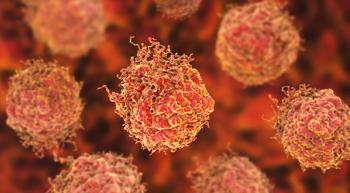
Dr. Stephanie Berg of Dana-Farber Cancer Institute and Harvard Medical School discusses the need to be mindful of quality of life when treating prostate cancer.
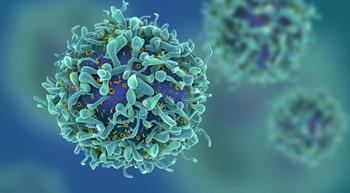
Experts look back on the year in the news regarding bispecific antibodies for the treatment of B-cell lymphomas including CLL and SLL.

The Food and Drug Administration has granted an Orphan Drug Designation to SLS009, a CDK9 inhibitor, for the treatment of patients with relapsed/refractory peripheral T-cell lymphomas.
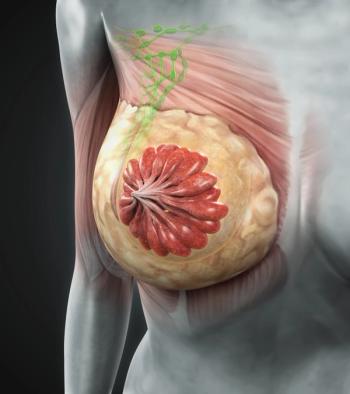
Dr. Heather Parsons of Dana-Farber Cancer Institute explains how a liquid biopsy could help patients with breast cancer and their care teams learn vital information.

Long-term cancer survivors experience diabetes at similar rates as individuals who are cancer-free, but cancer survivors with diabetes face a potentially higher risk of death, researchers have found.
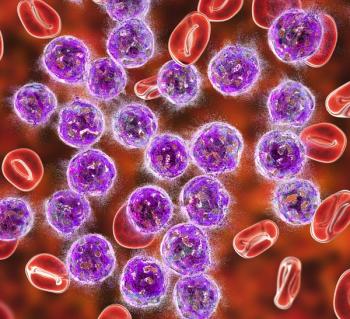
Dr. Douglas Tremblay of the Ichan School of Medicine explains the necessity of cytoreductive therapy for patients with MPNs such as essential thrombocythemia and polycythemia vera.

The Food and Drug Administration (FDA) has granted Fast Track Designation to the investigational adenovirus CAN-2409 plus prodrug Valtrex for the treatment of patients with pancreatic ductal adenocarcinoma.
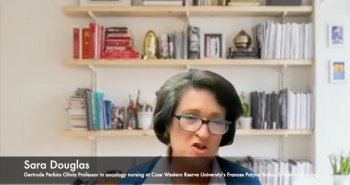
One expert explained how nurses have “opportunities to get to talk with patients and their loved ones in ways that you don't (get) when you're in the time crunch of an appointment with your oncologist,” and how that can impact end-of-life care.

Patients with relapsed/refractory large B-cell lymphoma treated with CAR-T cell therapy and bendamustine chemotherapy, experienced lower rates of survival and response as well as shorter times until progression, according to recent study findings.